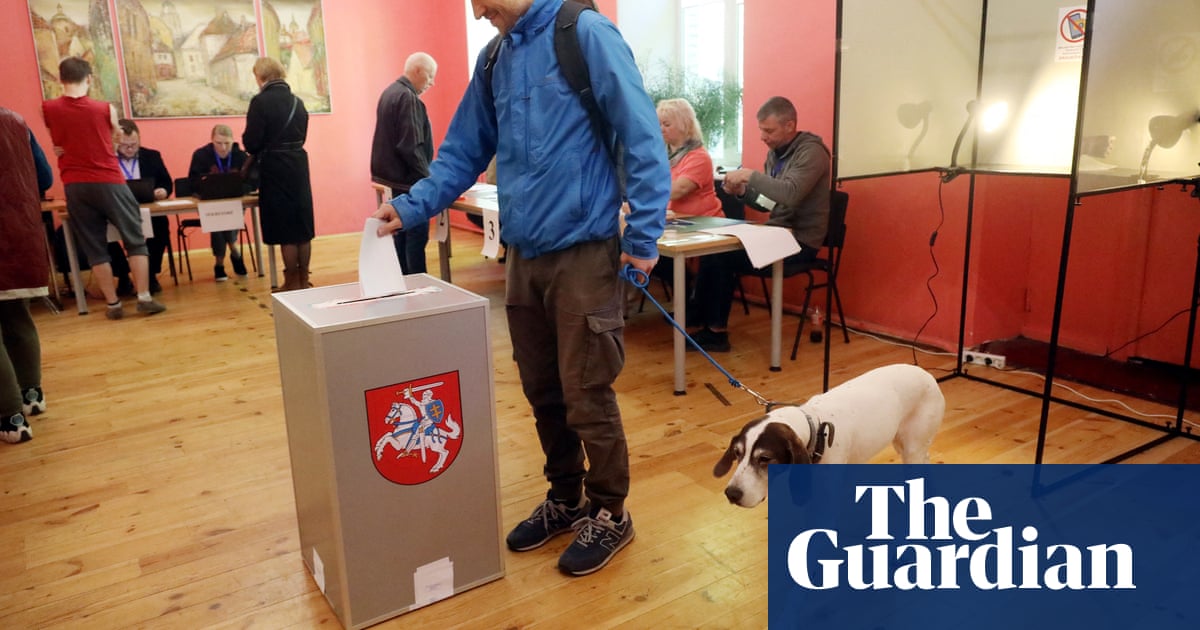
A leading French political scientist has warned voters not to consider the presidential election a foregone conclusion, because anything can happen before the first round on 10 April.
Dominique Reynié, head of the influential Fondapol thinktank, suggested it was dangerous for voters to not bother turning out just because opinion polls envisage a win for Emmanuel Macron. The combination of Covid and the war in Ukraine had made the election unpredictable, he said, admitting that even experts in analysing voting patterns could not reliably call the result.
“This is not an election like any other and I cannot see in any way that the result is certain. We could say one thing today and tomorrow it could be different,” Reynié, a professor at the prestigious Sciences Po university in Paris, told foreign journalists last week. “We cannot be sure of anything.”
Macron is enjoying a poll boost largely attributed to his role as global go-between for Moscow and Kyiv.
The latest figures on voting intentions in the first round show Macron’s support levelling off at around 27% – a slight drop from last week, but up from before Russia invaded Ukraine. The far right’s Marine Le Pen, who used to support Vladimir Putin but has recently distanced herself, climbed to 21%. Radical left candidate Jean-Luc Mélenchon has risen to third place with 13%, with the mainstream right candidate Valérie Pécresse behind him at 12% and Éric Zemmour on 10%. The Socialist candidate Anne Hidalgo is in eighth place with 2% behind sheep farmer Jean Lassalle with 3%, the Communist party’s Fabien Roussel on 4% and the Greens’ Yannick Jadot on 5%.
This would lead to a Macron-Le Pen second-round runoff – a repeat of the 2017 presidential election – with polls forecasting a 55%-45% win for Macron.
A survey for Les Echos suggested the cost of living and social protections including the welfare state remain voters’ main preoccupations. The war in Ukraine was cited by just over a quarter as a factor that will influence their vote.
“The advantage for Macron is that at this time of war, people rally to the president who is the head of the military and foreign policy … and there’s the idea that it’s not reasonable in this situation to have a new president who has no experience,” Reynié said.
However, he warned that the “flag factor” could backfire if the economic consequences of the war, particularly soaring fuel prices, hit French voters’ wallets too hard.
“Of course, we cannot compare problems like the cost of living against the tragedy in Ukraine but we have to take them into consideration,” Reynié said.
“The French are shocked by Putin’s aggression and are pro-Ukraine, but it’s a difficult and evolving situation. Also, French voters don’t think it’s for them to pay for this [war] effort. In many countries, this would probably be considered a funny idea but in France people often consider that it’s not for them to make an effort but ‘the state’, without understanding that ‘the state’ is the same as ‘the French’.
“I don’t believe people will say ‘oh, too bad for the Ukrainians’ but they could say it’s for the state to pay for this.”
Le Monde has described this presidential race as a “phantom campaign” – over before it had even begun – but Reynié said voters who failed to turn out because they believed there was no point risked a repeat of the 2002 presidential trauma, when a combination of abstention and protest votes saw the far-right Jean-Marie Le Pen knock out the Socialist candidate in the first round.
“On 10 April there could be strong abstention from moderate voters who are anti Marine Le Pen but hostile to Emmanuel Macron and this is the largest group in the electorate. If they don’t turn out for the first round, thinking it’s a foregone conclusion, we just don’t know what the consequences will be. What we do know is that high abstention creates situations that are irreversible and weaken the democratic nature of the vote.”
Reynié said that if Macron does win a second term he will need a convincing score to push through controversial reforms, including a long-promised shake-up of the pensions system.
“We already know how people will react to contested measures: they will say we voted for you because there was the war in Ukraine; we voted for you because you were against Marine Le Pen; we didn’t vote for you to do this reform.”
He added: “I will take a risk and say that if I was to bet I would gamble that Emmanuel Macron will be reelected but I’m taking a risk because of all the things over which I have no control that could have ramifications.
“Based on opinion polls and intentions to vote today, we can say it’s probable but it is just a probability; it would be absurd to say the reelection of Emmanuel Macron is certain.”











